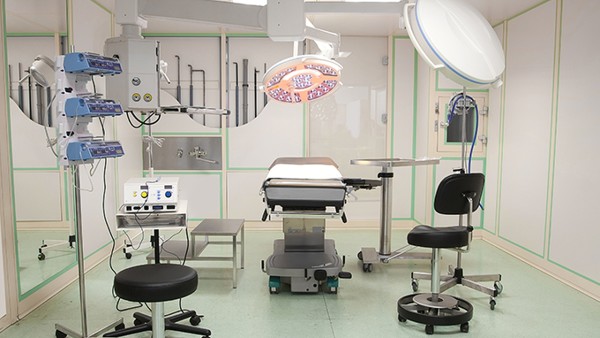How to Detect Premature Labor as Soon as Possible

Premature labor is a serious pregnancy complication that can lead to health problems for both the mother and baby. It is important to be aware of the signs and symptoms of premature labor so that you can get medical help as soon as possible.
What is Premature Labor?
Premature labor is defined as labor that begins before 37 weeks of gestation. Labor is the process of the uterus contracting and pushing the baby out of the birth c***. When labor begins too early, the baby is not fully developed and may have serious health problems.
Causes of Premature Labor
The exact cause of premature labor is often unknown. However, there are a number of risk factors that can increase your chances of having premature labor, including:
Having a history of premature labor
Being pregnant with twins or triplets
Having certain medical conditions, such as high blood pressure or diabetes
Smoking during pregnancy
Using drugs or alcohol during pregnancy
Having a short cervix
Signs and Symptoms of Premature Labor
The signs and symptoms of premature labor can vary from woman to woman. Some women may experience only a few mild symptoms, while others may have more severe symptoms.
Common signs and symptoms of premature labor include:
Contractions that are coming more often than every 10 minutes
Contractions that are getting stronger and longer
Back pain
Pelvic pressure
Vaginal bleeding
Watery discharge from the vagina
Uterine irritability
If you are experiencing any of these symptoms, it is important to call your doctor or midwife right away.
Diagnosis of Premature Labor
Your doctor or midwife will diagnose premature labor based on your symptoms and a physical examination. They may also order one or more of the following tests:
Pelvic exam: This test can determine if your cervix is dilated or effaced.
Ultrasound: This test can measure the length of your cervix.
Fetal fibronectin test: This test can measure the level of fetal fibronectin in your vagina. Fetal fibronectin is a protein that is released when the fetal membranes rupture.
Treatment of Premature Labor
The treatment for premature labor will depend on the severity of your symptoms and the gestational age of your baby. Treatment options may include:
Bed rest: This can help to reduce the frequency and intensity of contractions.
Medications: These can be used to stop or slow down contractions.
Cerclage: This is a surgical procedure that can be used to close the cervix and prevent it from opening too early.
Delivery: If your labor cannot be stopped, you may need to deliver your baby prematurely.
Complications of Premature Labor
Premature labor can lead to a number of health problems for both the mother and baby. These complications can include:
Respiratory problems: Premature babies are often born with underdeveloped lungs, which can make it difficult for them to breathe.
Feeding difficulties: Premature babies may have difficulty sucking and swallowing, which can lead to malnutrition.
Jaundice: This is a condition that causes the skin and whites of the eyes to turn yellow. It is caused by a buildup of bilirubin, a waste product that is produced when red blood cells are broken down.
Brain damage: Premature babies are at increased risk for brain damage, which can lead to developmental problems.
Death: Premature labor is a leading cause of death in newborns.
Prevention of Premature Labor
There is no surefire way to prevent premature labor. However, there are a number of things you can do to reduce your risk, including:
Getting regular prenatal care: This can help to identify and treat any risk factors for premature labor.
Avoiding smoking and alcohol: These substances can increase your risk of premature labor.
Maintaining a healthy weight: Being overweight or obese can increase your risk of premature labor.
Managing stress: Stress can trigger premature labor.
Getting enough rest: Getting enough rest can help to reduce your stress levels and improve your overall health.
If you are at high risk for premature labor, your doctor or midwife may recommend that you take certain medications or have a cerclage.
If you are pregnant and experiencing any signs or symptoms of premature labor, it is important to call your doctor or midwife right away. Premature labor is a serious condition that can lead to health problems for both the mother and baby. However, early detection and treatment can help to improve the chances of a healthy outcome.
How to Manage Your Risk of Premature Labor
If you are pregnant and have any of the risk factors for premature labor, it is important to take steps to manage your risk. Here are a few things you can do:
Get regular prenatal care: This is the best way to identify and treat any risk factors for premature labor.
Avoid smoking and alcohol: These substances can increase your risk of premature labor.
Maintain a healthy weight: Being overweight or obese can increase your risk of premature labor.
Manage stress: Stress can trigger premature labor. Find healthy ways to manage stress, such as exercise, yoga, or meditation.
Get enough rest: Getting enough rest can help to reduce your stress levels and improve your overall health.
If you are at high risk for premature labor, your doctor or midwife may recommend that you take certain medications or have a cerclage.
Following these tips can help to reduce your risk of premature labor and improve the chances of a healthy pregnancy and delivery.
The above is all the content that the editor wants to share with you. I sincerely hope that these contents can bring some help to your life and health, and I also wish that your life will be happier and happier.
Topic: #detect #premature #how














